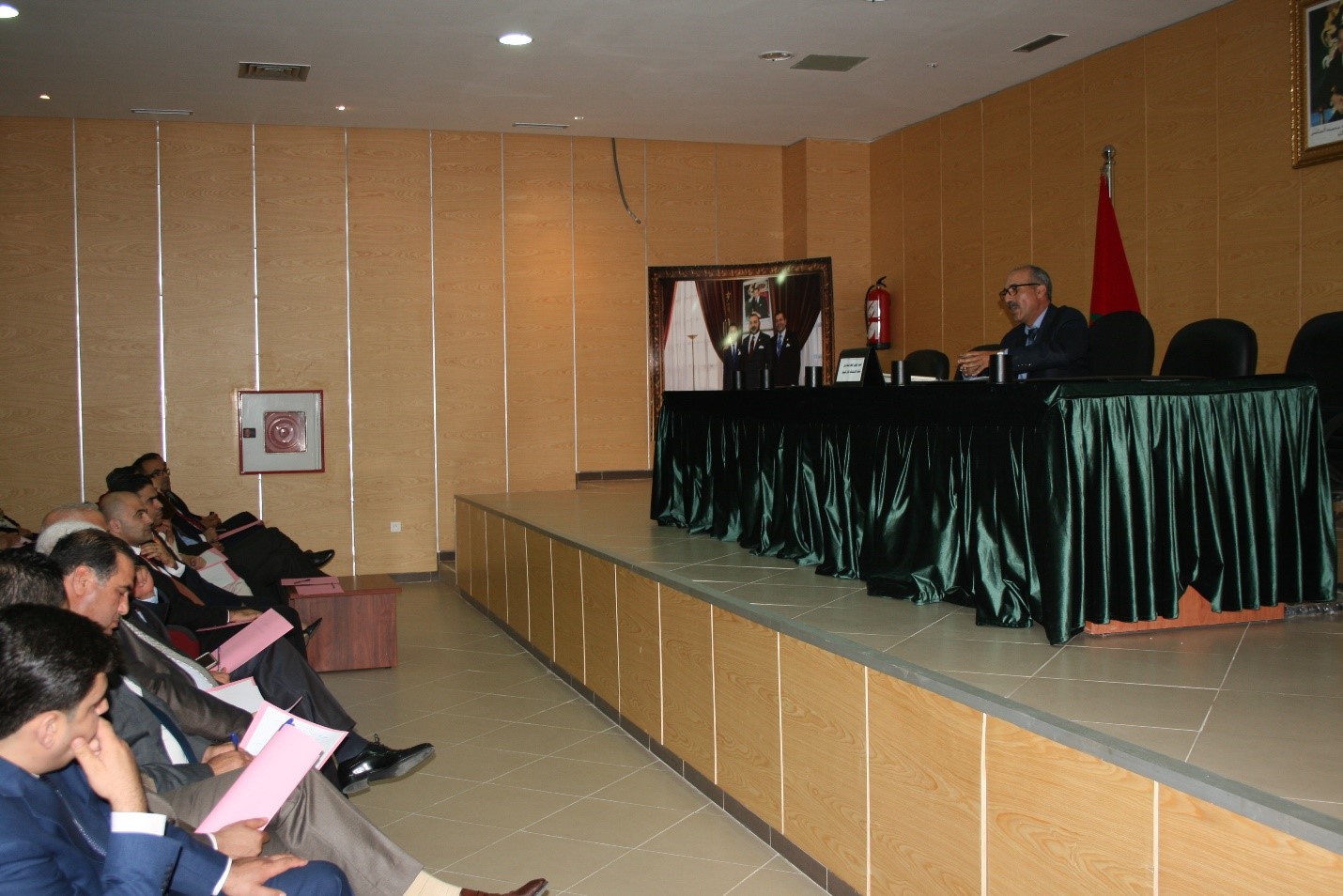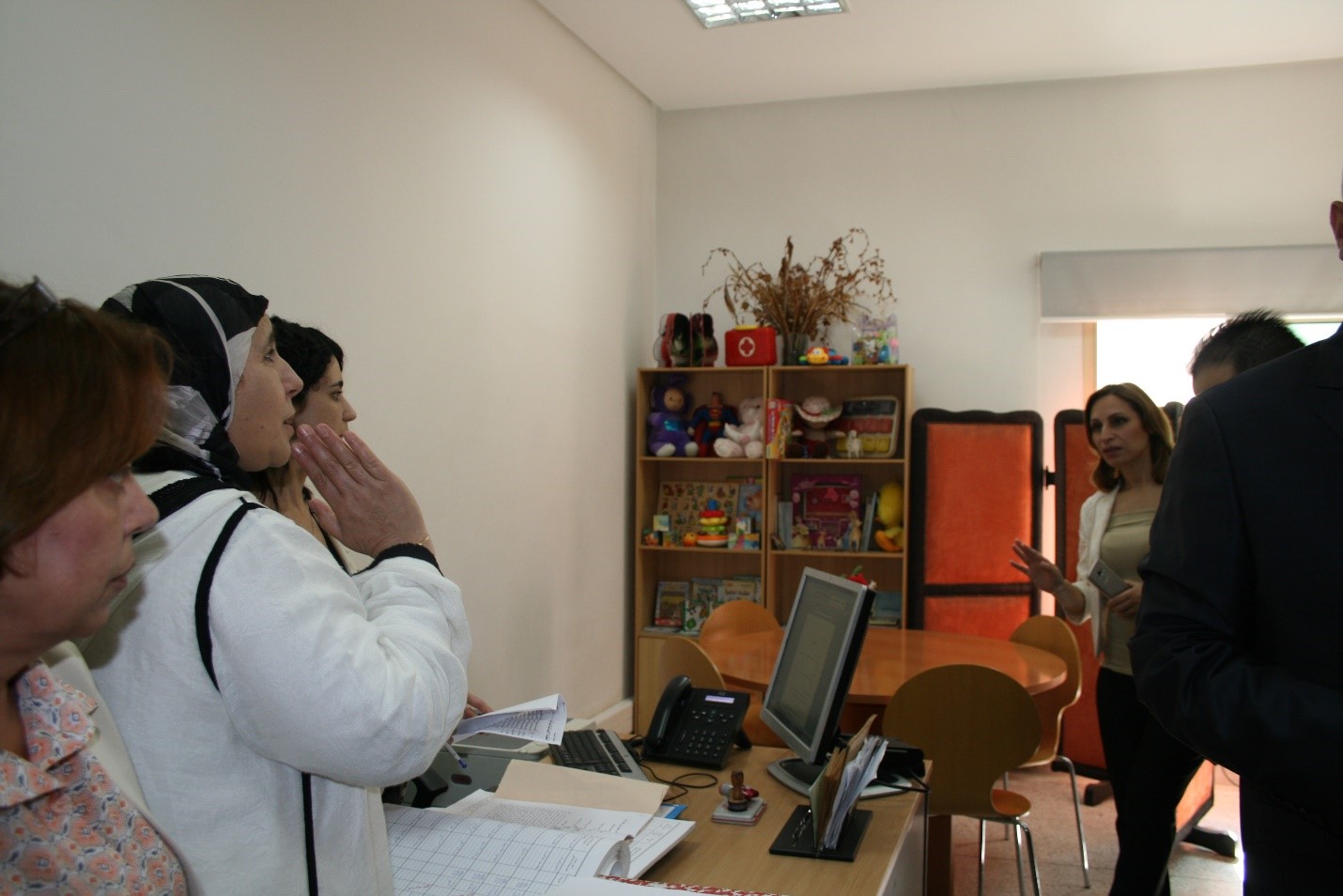Palestinian Judges Visit Morocco to Widen Perspectives on VAW Specialized Judicial Services
Date:
 Palestinian judges at the Appeal Court in Casablanca, Morocco, as part of Study Tour organized by UN Women to expose Palestinian judges to specialized judiciary services on violence cases against women (Photo: UN Women/Ahlam Qutub)
Palestinian judges at the Appeal Court in Casablanca, Morocco, as part of Study Tour organized by UN Women to expose Palestinian judges to specialized judiciary services on violence cases against women (Photo: UN Women/Ahlam Qutub)
“The trip widened our perspectives on violence against women (VAW) cases and helped us understand the necessity of developing specialized judiciary system for such cases in Palestine,” said one of the 14 Palestinian judges who were part of the Study Tour to Morocco organized by UN Women Palestine Office on 9-12 October 2017. The four-day trip was the first Study Tour of its kind in Palestine that targeted VAW judges and aimed to expose Palestinian judges to best practices and experience of another Arab country with a progressive approach in dealing with violence cases against women.
“The idea of the Study Tour to Morocco came along last year when the former Chief Justice announced his willingness to establish specialized judicial services on VAW cases within the High Judicial Council,” said Hanan Kamar, Access to Justice Analyst for UN Women Palestine Office. “One of the recommendations followed was exposing judges to another country in the region that established specialized judicial systems, in order for them to learn from its best practices,” she added.
In the Arab region, Morocco is a pioneering country on women’s rights and combatting VAW. The country established a specialized body within the judicial system to address violence against women, which includes representatives of Public Prosecution, the Ministry of Social Affairs, and civil society organizations. All parties are closely involved in providing inputs for every single violence case and a social worker or judicial assistant accompanies women through the judicial process and the court sessions. In addition, a gender responsive specialized procedures are adopted to ensure that the court’s internal processes align with human rights principles and standards.
 Palestinian judges listen to the explanation of their Moroccan counterparts about gender responsive enabling environment that is provided to women while approaching specialized services in courts (Photo: UN Women/Ahlam Qutub)
Palestinian judges listen to the explanation of their Moroccan counterparts about gender responsive enabling environment that is provided to women while approaching specialized services in courts (Photo: UN Women/Ahlam Qutub)
“We are impressed with the Moroccan court which put high emphasis on women’s human rights when processing each and every case,” said a female judge after visiting the childcare center, where women can leave their children during the trial. “Also, the harmonization of varying partners within the justice chain is really admirable,” she added.
Through direct interactions with ministers, judges, prosecutors, and social counselors, Palestinian judges learned about the best practices, policies and structures that were put in place to manage and coordinate violence cases against women in Moroccan courts. The judges were also given the opportunity to share their perspectives and views with their Moroccan peers, and explore possible solutions for common challenges that they face on daily basis.
When asked about the main achievement of the study tour, one of the judges said: “We are happy to see with our own eyes the success another Arab country has made, that we can learn from, but at the same time, we realize our critical role in providing protection to Palestinian women suffering from violence and amending this injustice through the rule of law.”
The Study Tour was supported by a programme titled, “Promoting the rule of law in the occupied Palestine territory”—or Sawasya, as it’s locally called—implemented jointly by UN Women, UNDP and UNICEF, and generously funded by the Government of Netherlands, the Swedish International Development Agency (SIDA), the United Kingdom Department for International Development (DFID) and the European Union (EU).